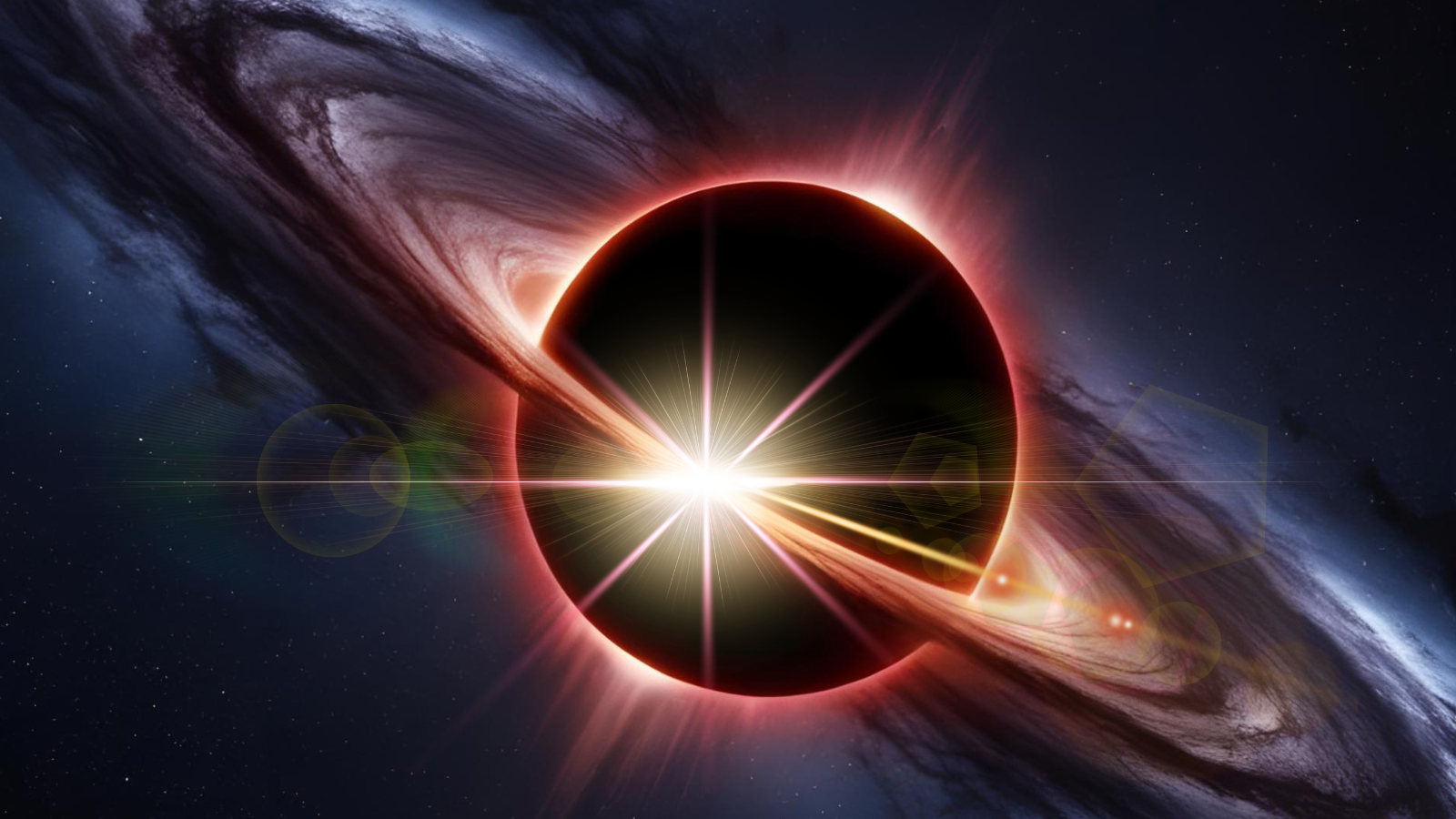- Get link
- X
- Other Apps
- Get link
- X
- Other Apps

Black Holes: Nature's Own Particle Colliders in the Hunt for Dark Matter
The quest to understand dark matter, the mysterious substance that makes up approximately **85% of the universe's mass**, has led scientists to consider an unlikely ally: supermassive black holes. New research suggests these cosmic behemoths could function as natural, super-powered particle colliders, offering a glimpse into physics beyond our current understanding.
For years, the Large Hadron Collider (LHC) has been our most powerful tool for probing the fundamental laws of nature. While the LHC famously discovered the Higgs Boson in 2012, it has yet to reveal any direct evidence of dark matter particles or other phenomena beyond the "standard model of particle physics." This lack of discovery has spurred discussions about building even larger and more powerful colliders, projects that come with staggering price tags and decades-long construction timelines.
But what if nature has already provided us with the ultimate particle accelerator? Researchers are increasingly focusing on the extreme environments surrounding supermassive black holes as potential sources of high-energy particle collisions.
"One of the great hopes for particle colliders like the LHC is that it will generate dark matter particles, but we haven’t seen any evidence yet," explains Joseph Silk, a researcher at Johns Hopkins University and a member of the study team. "That's why there are discussions underway to build a much more powerful version, a next-generation supercollider. But as we invest $30 billion and wait 40 years to build this supercollider, nature may provide a glimpse of the future in supermassive black holes."
Supermassive Supercolliders: A Cosmic Alternative
Dark matter's elusive nature stems from its lack of interaction with light, rendering it invisible to our telescopes. This invisibility rules out the possibility of dark matter being composed of standard atoms, prompting scientists to search for new, exotic particles.
Here's how supermassive black holes could act as particle accelerators:
- Accretion Disks: Supermassive black holes, residing at the centers of galaxies, are often surrounded by swirling clouds of material called accretion disks.
- High-Speed Spin: As these black holes spin at tremendous speeds, they channel some of the surrounding material towards their poles.
- Plasma Jets: This channeled material is then ejected as powerful jets of plasma, traveling at near-light speed.
- Particle Collisions: Within these jets, particles collide with immense energy, potentially creating new particles, including those that could constitute dark matter.
"If supermassive black holes can generate these particles by high-energy proton collisions, then we might get a signal on Earth, some really high-energy particle passing rapidly through our detectors," Silk notes. "That would be the evidence for a novel particle collider within the most mysterious objects in the universe, attaining energies that would be unattainable in any terrestrial accelerator."
Harnessing the Black Hole's Power
The key to this theory lies in the discovery that gas flows near black holes can extract energy from the black hole's spin. This process intensifies the conditions within the gas, leading to more violent and frequent particle collisions.
Silk explains, "Some particles from these collisions go down the throat of the black hole and disappear forever. But because of their energy and momentum, some also come out, and it’s those that come out which are accelerated to unprecedentedly high energies."
While the exact energy limit of these cosmic accelerators is still unknown, scientists believe they could rival, or even exceed, the capabilities of planned next-generation supercolliders.
The Challenge of Detection
Detecting these high-energy particles from distant black holes will undoubtedly be a challenge. However, researchers hope to utilize existing observatories that are already monitoring supernovas, black hole eruptions, and other high-energy cosmic events.
"The difference between a supercollider and a black hole is that black holes are far away," Silk concludes. "But nevertheless, these particles will get to us."
This fascinating research, published in the journal *Physical Review Letters*, opens up a new avenue in the search for dark matter. By turning our attention to the most extreme environments in the universe, we may finally unlock the secrets of this elusive substance and gain a deeper understanding of the cosmos.
Source: https://www.space.com/astronomy/black-holes-could-work-as-natural-particle-colliders-to-hunt-for-dark-matter-scientists-say
Accelerators
Black holes
Cosmology
Dark matter
Higgs Boson
LHC
Particle collider
Physics
Standard Model
Supermassive
- Get link
- X
- Other Apps
Comments
Post a Comment